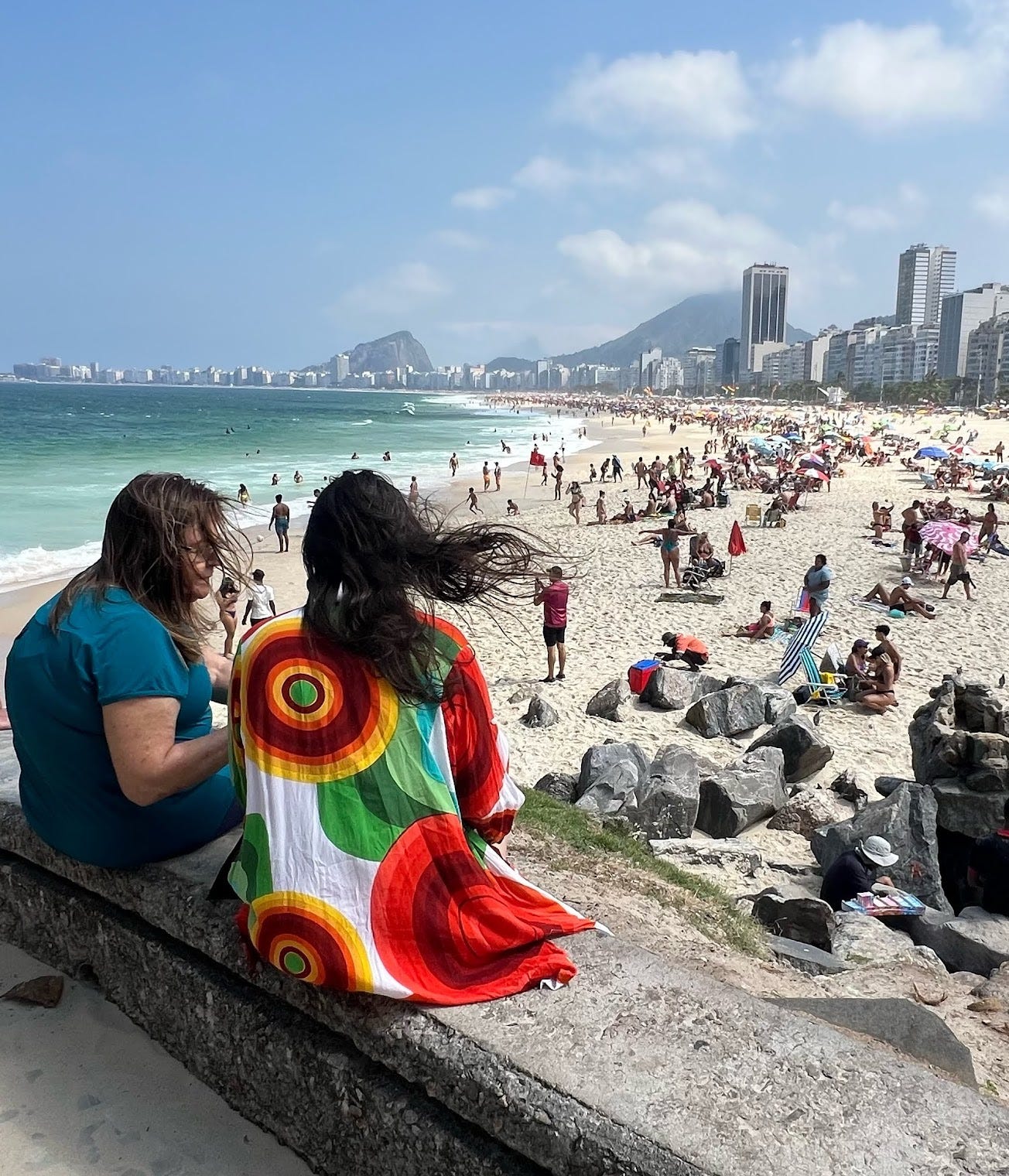Update, 6:30 pm Brazil time, Aug. 31 - X flickered to life just a few minutes after I posted this, at least from my Rio hotel - just long enough for me to tweet afresh. But now it’s spinning and frozen again. So back to Threads and Bluesky for the moment.
On the final morning of a hectic three-city visit to Brazil to brainstorm with journalists, students and scientists on next steps for climate communication, Twitter ground to a halt as an order by a Supreme Court judge here took effect.
The imposed hiatus was refreshing in some ways. You may have heard my recent song about the merits of tossing your phone in a drawer once in awhile.
And it is kind of fun to see someone get under the skin of a megalomaniac. It’s no secret that I really hate much of Elon Musk’s impact on the communication practice I still call Twitter, which takes place on the platform he now calls X.
As you almost surely know, I still find Twitter uniquely valuable in navigating a host of wicked issues related to human sustainability - from climate change to disaster risk reduction to war and peace and taming information superstorms. Thanks to Musk, though, one has to don a protective suit and diver’s rebreathing system to plunge beneath the polluted surface of X and collaborate with other solution seekers.
A dangerous move in a democracy
At the same time, the move to shut down access to X in Brazil, made by Supreme Court Justice Alexandre de Moraes, feels like dangerous overreach.
In 2022 Moraes was given sole and extreme power to remove online content after a wave of fakery around recent elections helped trigger extremist actions by supporters of Jair Bolsonaro. That tsunami of disinformation has subsided. But in recent months Moraes has been in a running battle with Musk and X, and Musk’s decision to ignore court orders led to the shutdown.
I totally get the frustration, and if the company has violated the law, a significant response is needed. As Moraes wrote in a decision on Friday, “Elon Musk showed his total disrespect for Brazilian sovereignty and, in particular, for the judiciary, setting himself up as a true supranational entity and immune to the laws of each country.”
My concerns echo those of David Nemer, as described in a New York Times story on the showdown by Jack Nicas and Kate Conger:
“I was someone who was very on [Moraese’s] side,” said David Nemer, a Brazilian-born media professor who has studied his nation’s approach to disinformation at the Berkman Klein Center for Internet & Society at Harvard University.
“But when we saw the X decision, we were like: ‘What the hell? This is too much,’” he said, using an expletive…. Justice Moraes has “set up a state of exception,” Mr. Nemer said. “But it’s a permanent state of exception, and that’s not good for any sort of democracy.”
If you read me regularly you’ll know that “state of exception” is the language used in declaring a national emergency. This came up in my reporting on efforts by some climate campaigners to get President Joe Biden to declare a “climate emergency.” A permanent state of exception can be a pathway to authoritarianism, whether initiated because of extreme storms in the information climate or the geophysical one.
As Nicas and Conger write, this is tough terrain for any democracy:
Brazil’s yearslong fight against the internet’s destructive effect on politics, culminating in the current blackout of X, shows the pitfalls of a nation deciding what can be said online. Do too little and allow online chatter to undermine democracy; do too much and restrict citizens’ legitimate speech.
Other governments worldwide are likely to be watching as they debate whether to wade into the messy work of policing speech or leave it to increasingly powerful tech companies that rarely share a country’s political interests.
As the Associated Press reported, this is not the first such move by Brazilian judge and hardly restricted to Brazil, with a host of other countries and companies doing battle over information flows:
Lone Brazilian judges shut down Meta’s WhatsApp, the nation’s most widely used messaging app, several times in 2015 and 2016 due to the company’s refusal to comply with police requests for user data. In 2022, de Moraes threatened the messaging app Telegram with a nationwide shutdown, arguing it had repeatedly ignored Brazilian authorities’ requests to block profiles and provide information. He ordered Telegram to appoint a local representative; the company ultimately complied and stayed online.
X and its former incarnation, Twitter, have been banned in several countries — mostly authoritarian regimes such as Russia, China, Iran, Myanmar, North Korea, Venezuela and Turkmenistan. Other countries, such as Pakistan, Turkey and Egypt, have also temporarily suspended X before, usually to quell dissent and unrest. Twitter was banned in Egypt after the Arab Spring uprisings, which some dubbed the “Twitter revolution,” but it has since been restored.
Beware “digital authoritarianism”
Waking up to frozen X took me back to a Sustain What conversation I had in January 2022 with a leading analyst of internet disruptions, Doug Madory, the director of internet analysis for Kentik, where he works on internet infrastructure analysis with a focus on disruptions, whether the cause is undersea cable damage in disasters like the 2022 Tonga volcanic eruption or political decisions. I’ve posted our chat at the top of this dispatch and hope you’ll give a listen. No one knows the issues better. A decade ago, Madory was described by the Washington Post as “The Man Who Can See the Internet.”
Also read Suppressing Dissent: The Rise of the Internet Curfew, a 2022 post by Madory and Peter Micek, which walks through the history of intentional throttling of social media by nations worried about dissent. Here’s what one such shutdown looked like in Cuba in 2022:
Also read this Conversation post: Internet shutdowns: here’s how governments do it, by Lisa Garbe, a postdoctoral research fellow at the WZB Berlin Social Science Center.
Of course in all of this, it’s worth noting that Musk, while yelling about free speech, has been using his total control of X to distort the landscape of converations there. No easy balance indeed.
Brazil discovers Bluesky
In the meantime, communication must continue and Diario Carioca and other news outlets reported that 500,000 Brazilians launched Bluesky accounts in 48 hours.
Here’s a parting shot from Rio de Janeiro:


















Share this post